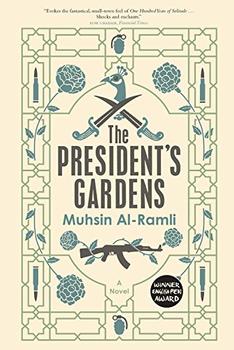Summary | Excerpt | Reviews | Beyond the book | Read-Alikes | Genres & Themes | Author Bio

How American Incompetence Created a War Without End
by Peter W. GalbraithFrom the book jacket: The United
States invaded Iraq with grand ambitions to bring it democracy
and thereby transform the Middle East. Instead, Iraq has
disintegrated into three constituent components: a pro-western
Kurdistan in the north, an Iran-dominated Shiite entity in the
south, and a chaotic Sunni Arab region in the center. The
country is plagued by insurgency and is in the opening phases of
a potentially catastrophic civil war.
George W. Bush broke up Iraq when he ordered its invasion in
2003. The United States not only removed Saddam Hussein, it also
smashed and later dissolved the institutions by which Iraq's
Sunni Arab minority ruled the country: its army, its security
services, and the Baath Party. With these institutions gone and
irreplaceable, the basis of an Iraqi state has disappeared.
The End of Iraq describes the administration's strategic
miscalculations behind the war as well as the blunders of the
American occupation. There was the failure to understand the
intensity of the ethnic and religious divisions in Iraq. This
was followed by incoherent and inconsistent strategies for
governing, the failure to spend money for reconstruction, the
misguided effort to create a national army and police, and then
the turning over of the country's management to Republican
political loyalists rather than qualified professionals.
As a matter of morality, Galbraith writes, the Kurds of Iraq are
no less entitled to independence than are Lithuanians,
Croatians, or Palestinians. And if the country's majority
Shiites want to run their own affairs, or even have their own
state, on what democratic principle should they be denied? If
the price of a unified Iraq is another dictatorship, Galbraith
writes in The End of Iraq, it is too high a price to pay.
The United States must focus now, not on preserving or forging a
unified Iraq, but on avoiding a spreading and increasingly
dangerous and deadly civil war. It must accept the reality of
Iraq's breakup and work with Iraq's Shiites, Kurds, and Sunni
Arabs to strengthen the already semi-independent regions. If
they are properly constituted, these regions can provide
security, though not all will be democratic.
There is no easy exit from Iraq for America. We have to
relinquish our present strategy -- trying to build national
institutions when there is in fact no nation. That effort is
doomed, Galbraith argues, and it will only leave the United
States with an open-ended commitment in circumstances of
uncontrollable turmoil.
Peter Galbraith has been in Iraq many times over the last
twenty-one years during historic turning points for the country:
the Iran-Iraq War, the Kurdish genocide, the 1991 uprising, the
immediate aftermath of the 2003 war, and the writing of Iraq's
constitutions. In The End of Iraq, he offers many
firsthand observations of the men who are now Iraq's leaders. He
draws on his nearly two decades of involvement in Iraq policy
working for the U.S. government to appraise what has occurred
and what will happen. The End of Iraq is the definitive
account of this war and its ramifications.
Comment: Peter Galbraith served on the staff of the
United States Senate Foreign Relations Committee from 1979 to
1993, where he took a special interest in Kurdistan. In 1993, he
was appointed U.S. Ambassador to Croatia by President Bill
Clinton. He later served as United Nations ambassador in East
Timor where he negotiated an oil-treaty between East Timor and
Australia 90/10 in Timor's favor, and forced Australia to back
down on maritime boundary issues, declaring to Australian oil
men, "The Timor Sea is closed for business!"
In 2003, he resigned from U.S. government after 24 years of
service in order to be able to criticize U.S. Iraq policy more
freely. He is currently a senior diplomatic fellow
at the Center for Arms Control and Non-Proliferation and writes
frequently about Iraq in the
New York Review of Books.
At the risk of pointing out the obvious, there is no shortage of
books about the current situation in Iraq. However, few,
if any, come from better qualified sources than Galbraith.
Those who don't agree with his arguments for allowing Iraq to
separate into its three constituent parts, unsurprisingly find
fault with his book, and suggest that his take on events is
skewed by his long-held support for a Kurdish nation.
Galbraith's cogent analysis of the history of Iraq, and the
USA's involvement in the country, seems to be eminently balanced
and clear and, from the point of view of this armchair-observer
of the Iraq debacle, it is difficult to find fault with his
conclusions.
.
Sunnis and Shi'a
Sunnis and Shi'as (aka Shiites) are both Muslims, but are
split by theological differences of opinion that date back to
shortly after the religion was founded. Within both main groups
there are various subsects, and many Muslims prefer not to
identify with either group and refer to themselves simply as
Muslims. Shiites (from Shiat-Ali, meaning "partisans of
Ali") believe that only heirs of Ali (cousin and son-in-law to
Mohammed), are legitimate successors to Mohammed. Most
Shi'as believe that the Twelfth Imam (the Mahdi, "Guided One"),
who disappeared in 931, will return at the end of time, and
meanwhile he divinely guides their leaders. As the Shiite
leaders are divinely led they are believed to be perfect
interpreters of the Qur'an and infallible.
Sunnis believe that any qualified ruler can lead them and that
their rulers are fully human and therefore fallible. Both
Sunnis and Shiites hold to the five pillars of Islam (daily
prayer, fasting during Ramadan, alms giving, pilgrimage to Mecca
and the believe in one god). Both groups believe the Koran
to be sacred and that resurrection will follow the final day of
judgment. Worldwide, Shiites represent about 15% of all
Muslims, but are in the majority in Iran (89% Shi'a) and Iraq
(~60% Shi'a).
Sunni/Shi'a Comparison chart.
The Kurds (historical
map of Kurdistan;
map showing modern boundaries)
The region that covers northern Iraq, northwestern Iran,
northeastern Syria and southeastern Turkey has been known by
variations on the word Kurd since the time of the Sumerians.
In the 10th century, Kurdistan was split into five
principalities, and in later centuries into a collection of
semi-independent states under Ottoman rule.
Following World War I and the collapse of the Ottoman Empire,
The Treaty of Sèvres proposed providing an autonomous homeland
for the Kurds, but this was rejected. In 1923, The Treaty
of Lausanne divided the Kurdish region between Turkey, Iraq and
Syria.
In 1946 The Kurdistan Democratic Party (KDP), dedicated to the
creation of an independent Kurdistan, was founded. In
1961, the Kurds of northern Iraq rose up against the government;
they were crushed but in 1970 a peace agreement was signed
giving them some autonomy. In 1974 another uprising was
put down over the oil-rich province of Kirkuk.
In 1975 the leader of the KDP left to found the Patriotic Union
of Kurdistan (PUK), beginning decades of conflict with the KDP.
Meanwhile in Turkey in 1979 the Kurdistan Workers Party (PKK)
was created with the aim of seeking Kurdish independence.
In 1979, the Iranian revolution sparked a Kurdish revolt in Iran
that was quickly put down. Five years later the PKK turned to
armed struggle.
In 1988 Iraq retaliated against the Kurds for supporting the
Iranians during the Iran-Iraq war; thousands were killed and
more than a million were uprooted from their homes. In
1991 during the Iraq-Kuwait war, Iraq's Kurds rose up against
Saddam Hussein with the encouragement of the USA. However,
the UN forces did not help the Kurds and their revolt was
brutally put down.
In 1993, the Turkish government granted limited autonomy to the
Kurds, but a year later fighting broke out between the KDP and
PUK over control of the Kurdish autonomous region; a peace
treaty was signed in 1998. In 2002 the Iraqi Kurdish
regional parliament met for the first time in six years
indicating real signs of unity between the two factions.
On May 30 2007, the
autonomous northern Iraqi region of Kurdistan signed a security
cooperation accord with the U.S-led coalition.
Kurdish History Timeline.
More Links:
![]() This review
first ran in the June 7, 2007
issue of BookBrowse Recommends.
This review
first ran in the June 7, 2007
issue of BookBrowse Recommends.

If you liked The End of Iraq, try these:

by Muhsin Al-Ramli
Published 2019
One Hundred Years of Solitude meets The Kite Runner in Saddam Hussein's Iraq.

by Kevin Powers
Published 2013
With profound emotional insight, especially into the effects of a hidden war on mothers and families at home, The Yellow Birds is a groundbreaking novel about the costs of war that is destined to become a classic.
Your guide toexceptional books
BookBrowse seeks out and recommends the best in contemporary fiction and nonfiction—books that not only engage and entertain but also deepen our understanding of ourselves and the world around us.